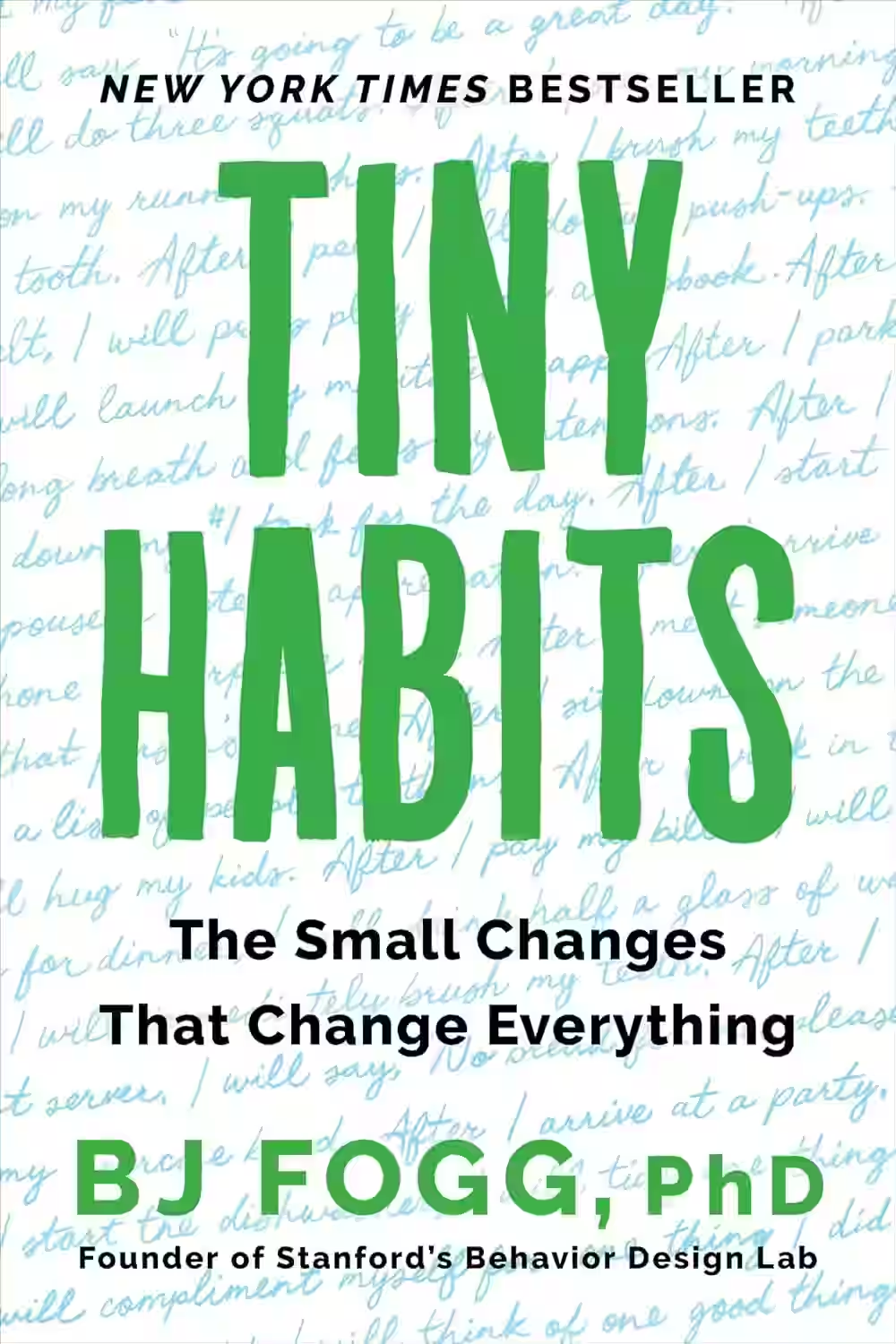
In 'Tiny Habits,' renowned behavior scientist BJ Fogg delivers a transformative guide on the science of habit formation. Drawing from decades of research, Fogg presents a groundbreaking yet straightforward approach to creating positive and lasting change in one's life. The book emphasizes the power of small actions and provides actionable strategies to build habits effortlessly, dismantling the myth that change requires strong willpower. Fogg introduces his paradigm-shifting 'Behavior Model' and illustrates it with practical examples and success stories. By focusing on simplicity and celebrating small victories, 'Tiny Habits' empowers readers to gradually reshape their behaviors and lives fundamentally and sustainably.
About BJ Fogg
BJ Fogg is an esteemed American author, behavior scientist, and innovator in the field of persuasive technology. As the founder of the Behavior Design Lab at Stanford University, Fogg has profoundly influenced the study of human behavior and technology. Born and raised in Salt Lake City, Utah, he later pursued higher education at Brigham Young University and Stanford. Fogg is best known for his groundbreaking book 'Tiny Habits: The Small Changes That Change Everything,' where he outlines a revolutionary framework for fostering positive behavioral changes. His work has transcended academic circles, deeply impacting both the tech industry and individuals seeking personal growth. Widely regarded as a thought leader, his insights are instrumental in the design of many contemporary digital platforms, aiming to positively influence user habits. Fogg's contributions have sparked a global dialogue on the intersection of technology, psychology, and behavior, making him a pivotal figure in modern literature on self-improvement.
Similar Books
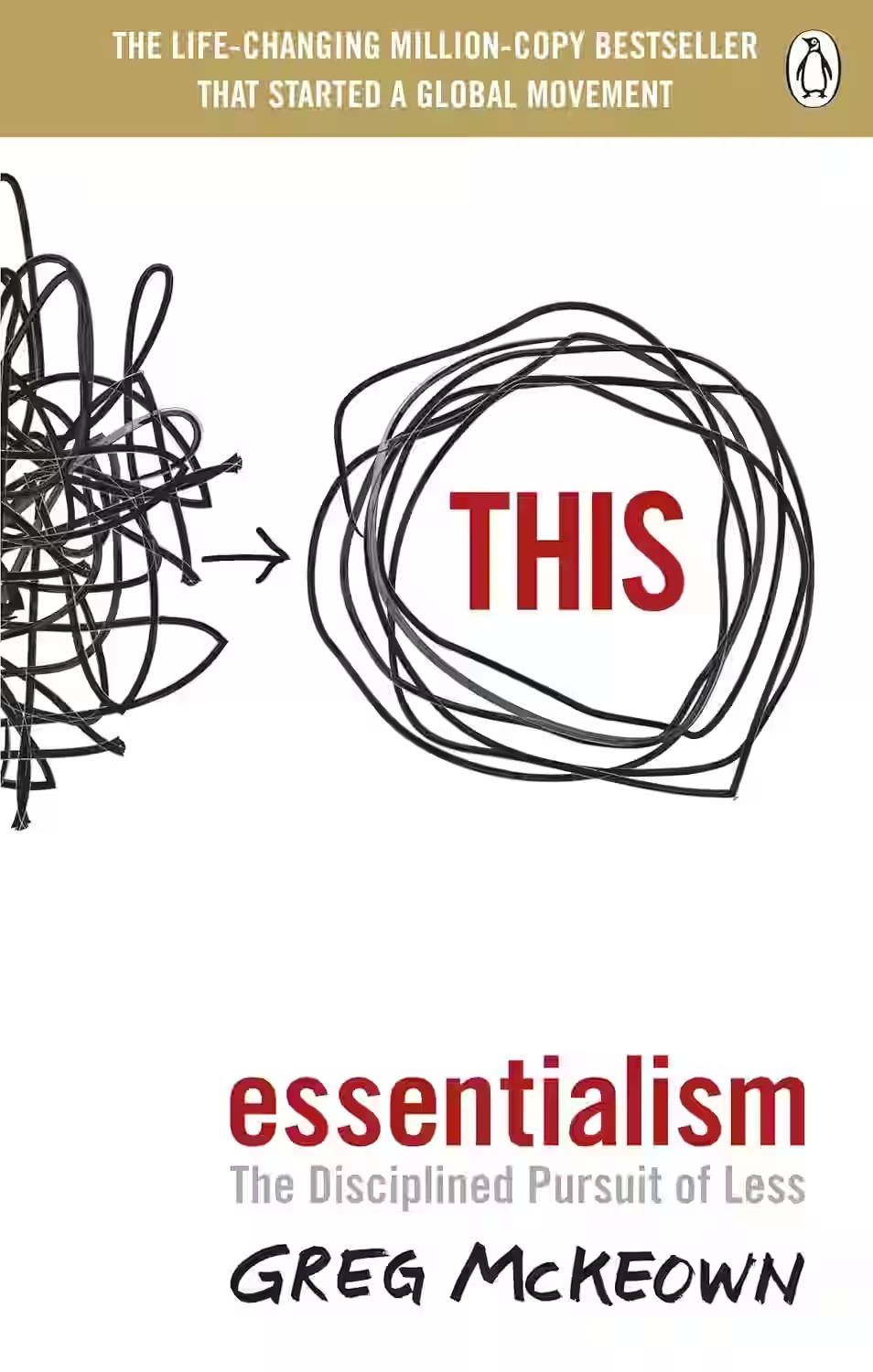
Essentialism: The Disciplined Pursuit of Less
by Greg McKeown
Essentialism is a manifesto for simplicity in an increasingly busy world. Greg McKeown advocates for doing less, but better—focusing only on what is truly important. He challenges the idea that we must do everything and instead teaches readers how to identify their highest priorities, eliminate non-essential tasks, and reclaim control of their time and energy. With practical tips and clear frameworks, the book empowers readers to make deliberate choices, say no more often, and live with intention. Essentialism is about creating space for what really matters—professionally and personally—by embracing the power of focus and clarity.
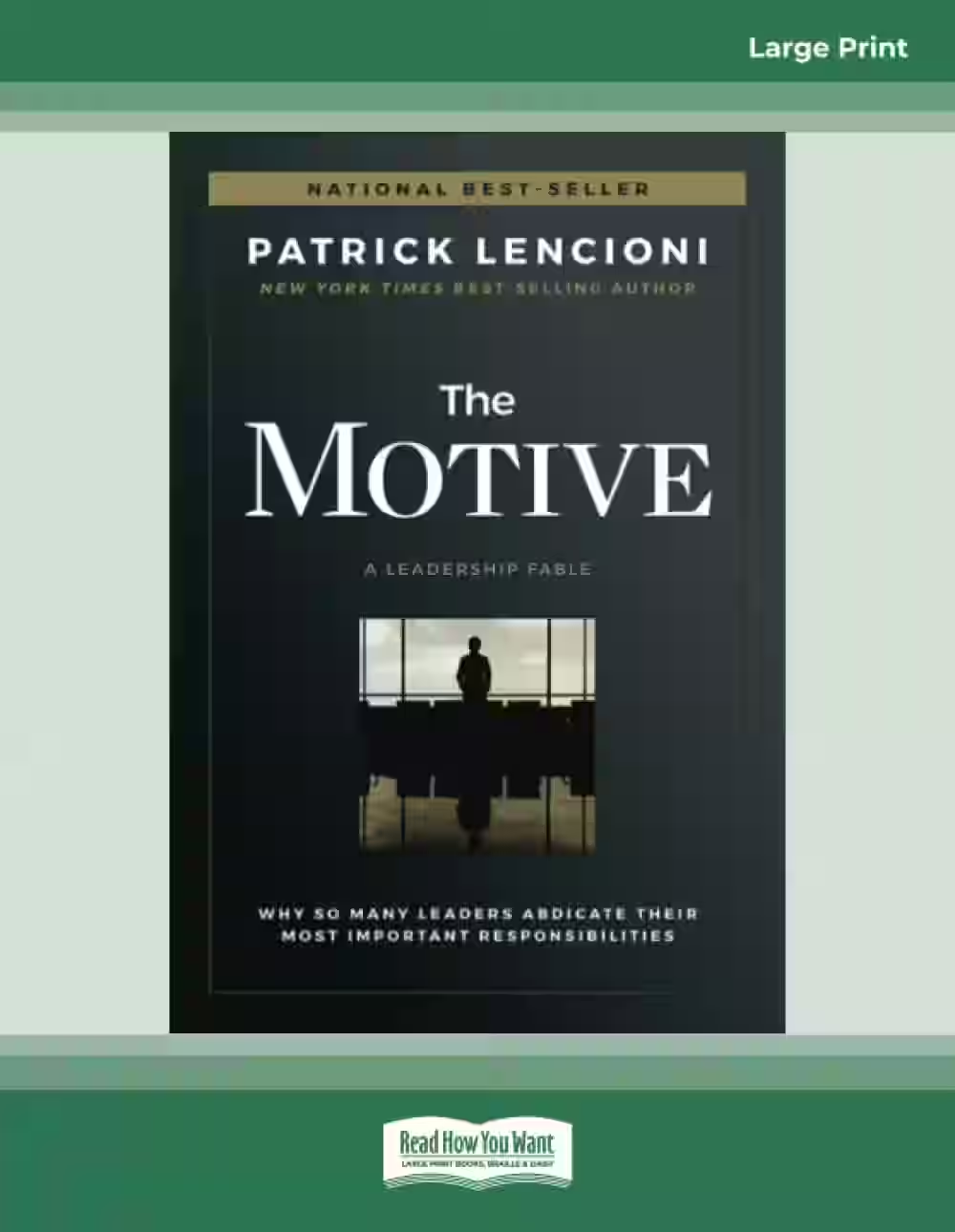
The Motive: Why So Many Leaders Abdicate Their Most Important Responsibilities
In 'The Motive: Why So Many Leaders Abdicate Their Most Important Responsibilities,' Patrick Lencioni delves into the high-stakes world of leadership and explores the reasons behind leaders failing to prioritize their responsibilities effectively. Through a compelling narrative, Lencioni unpacks the true motive that drives leaders, emphasizing the crucial distinction between leading for self-interest and leading for the collective good. With insightful anecdotes and practical advice, the author challenges conventional notions of leadership and prompts readers to reflect on their own motives. This book serves as a wake-up call for leaders at all levels, urging them to reassess their priorities and align their actions with the true essence of leadership.
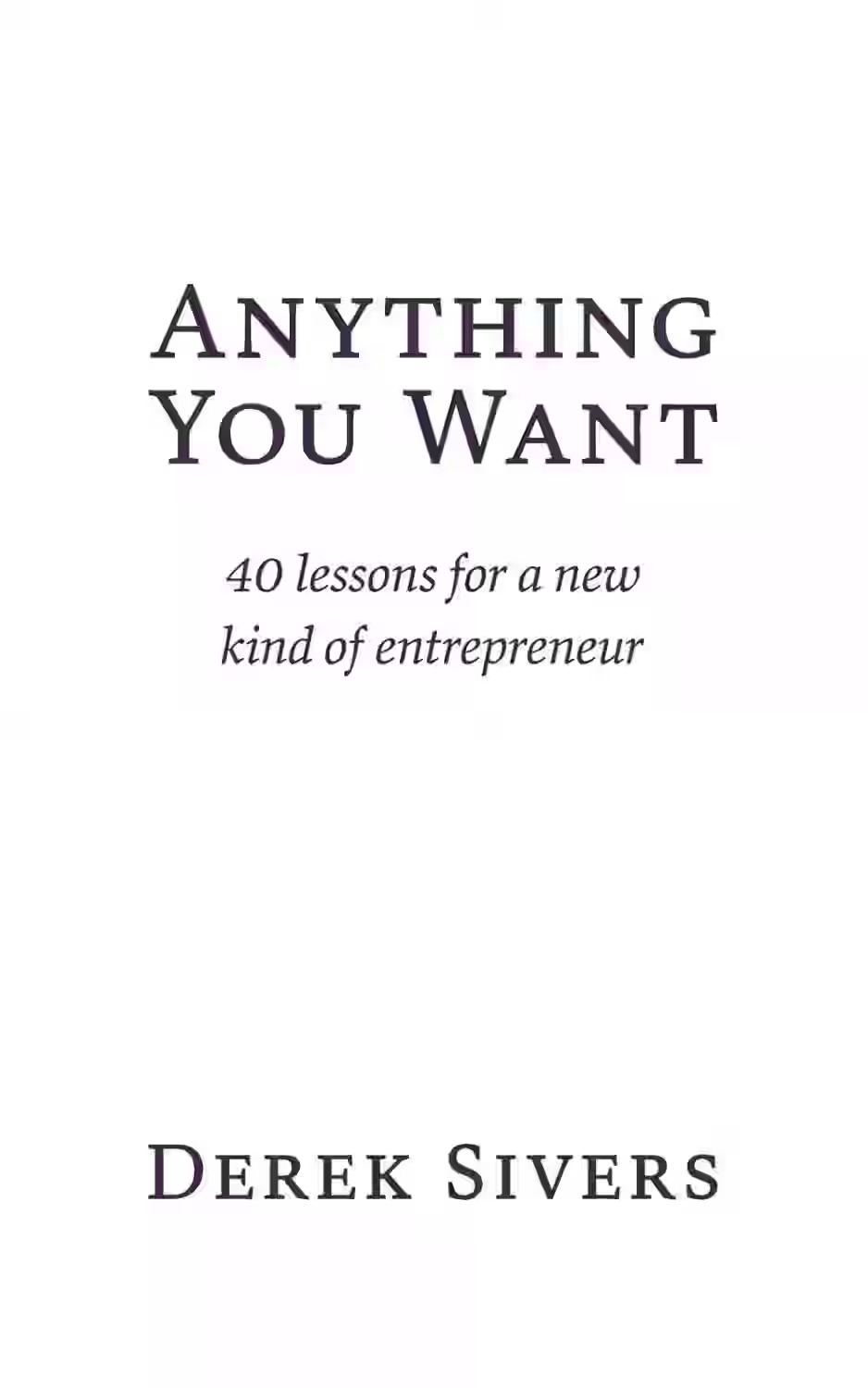
Anything You Want
by Derek Sivers
Anything You Want is a concise, unconventional guide to entrepreneurship drawn from Derek Sivers’ experience founding and running CD Baby. Rejecting traditional business advice, Sivers advocates for simplicity, personal fulfillment, and customer-centric thinking. He emphasizes doing what feels right rather than chasing external validation or scale for its own sake. The book combines practical insights with reflective storytelling, highlighting the value of independence, generosity, and clarity of purpose. With its direct tone and minimalist philosophy, Anything You Want is an inspiring read for entrepreneurs who want to build meaningful businesses on their own terms—not by following a blueprint.
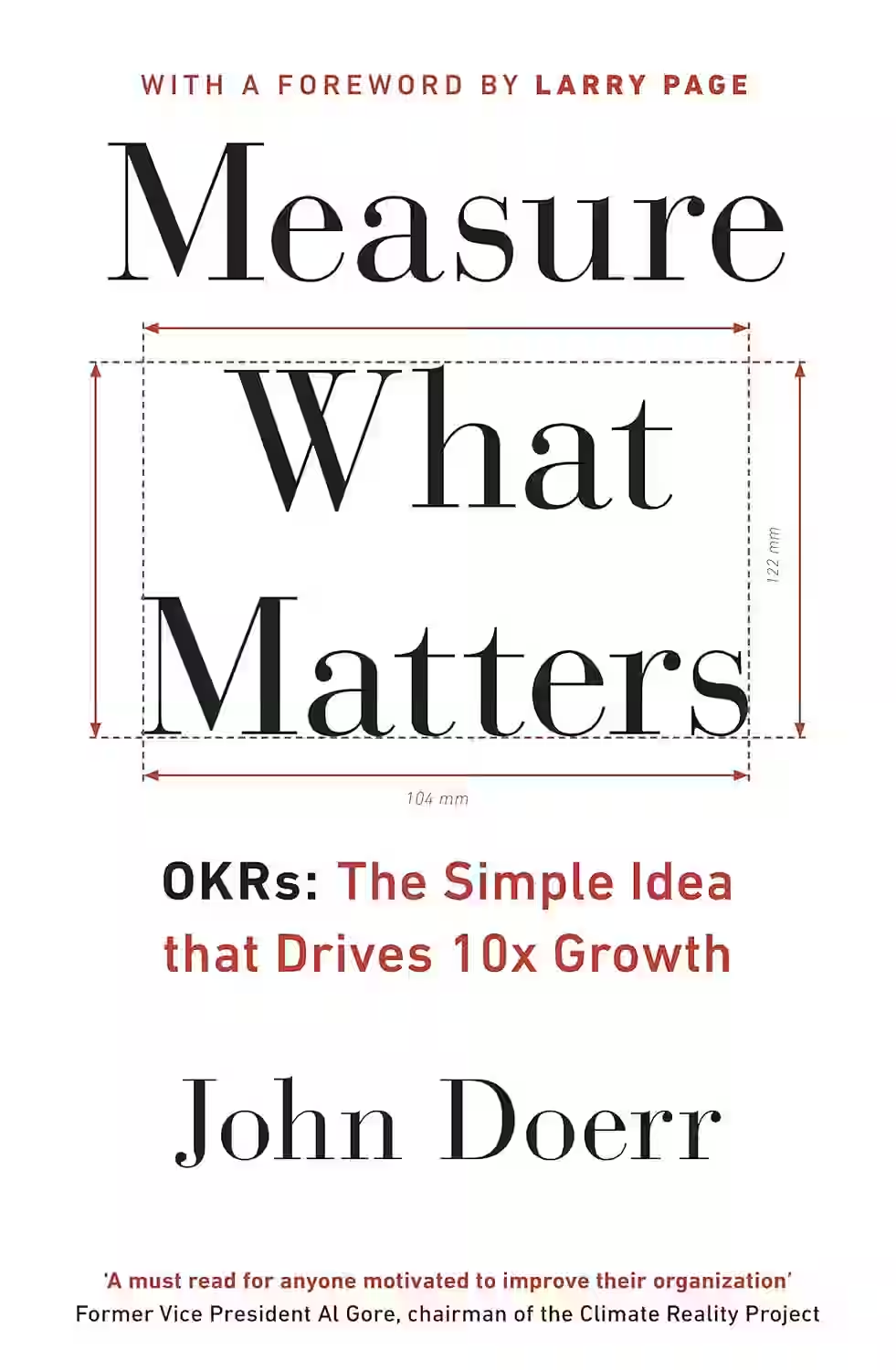
Measure What Matters
by John Doerr
This influential business book introduces the Objectives and Key Results (OKRs) framework, a goal-setting system used by major companies like Google, Intel, and Bono’s ONE campaign. John Doerr, a legendary venture capitalist, outlines how OKRs help organizations focus effort, track progress, and foster alignment and accountability. Through detailed case studies from Google, YouTube, and the Gates Foundation, Doerr shows how this method has transformed productivity and performance. Larry Page has praised the book, saying he wished he had it at the beginning of Google’s journey. “Measure What Matters” is a practical blueprint for building goal-driven, agile organizations.